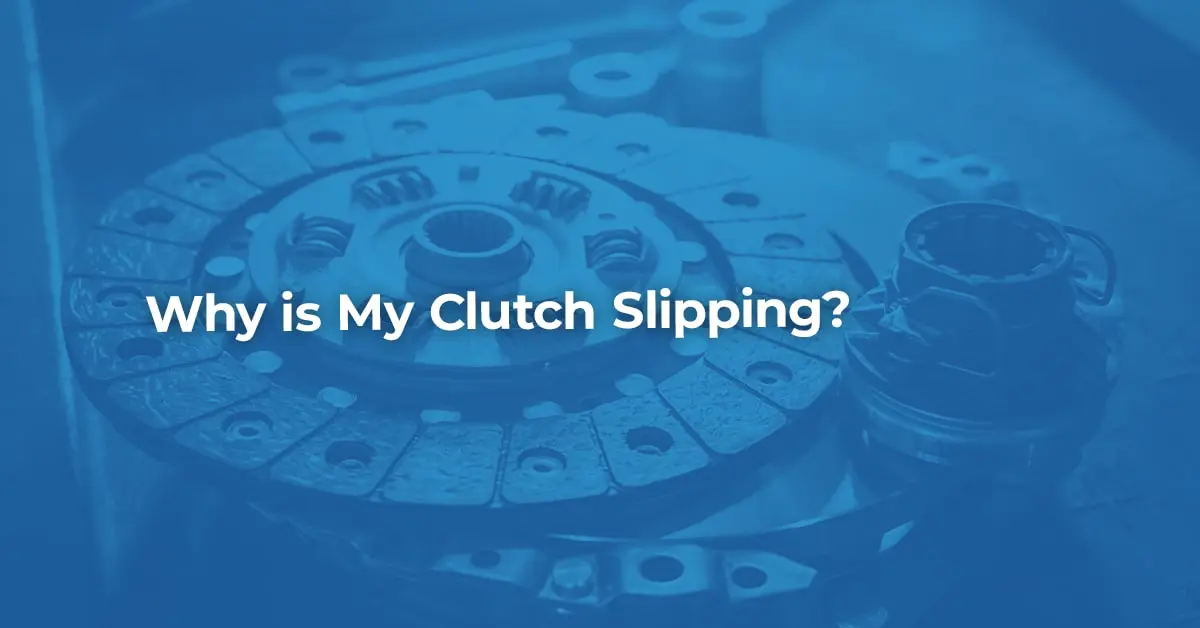If your clutch is slipping or sticking, then your clutch has likely worn out.
You should not take the issue of a slipping clutch lightly, as this can indicate that there is a serious issue with your vehicle's transmission and you may be in need of a clutch replacement.
Read on and find out why your clutch is slipping, what this means, and how to spot a slipping clutch.
Page Contents
What Is a Slipping Clutch?
When a clutch fails to engage or disengage the transmission - gearbox - it can cause the vehicle to slip in and out of gear when accelerating.
When the friction material surrounding the clutch wears away, this means that the clutch can no longer withstand the same level of engine torque, and so less torque may be supplied to the wheels.
As a result, there will be a loss of power between the vehicle and the wheels.
What Causes Your Clutch to Slip?
A clutch can slip if there is insufficient friction between the clutch disc, flywheel, and pressure plate.
Bad driving habits like riding the clutch pedal when accelerating or being aggressive when changing gears can cause the clutch to wear out faster.
The pressure plate applies pressure to the clutch disc, allowing it to engage with the flywheel. As such, a weak or worn-out pressure plate can cause the clutch to slip.
Any oil leaks from the engine or transmission can spill onto the clutch, stopping the friction surface on the clutch from engaging the flywheel.
The clutch may also have issues engaging or disengaging if there is a problem with the clutch linkage, cable, or hydraulic clutch fluid system.
If your clutch is slipping, you should have the issue resolved before booking your next MOT test, as this could result in MOT failure.
Is My Clutch Slipping?
If you have noticed any of the following symptoms, then you could have a slipping clutch which needs to be looked at by a professional mechanic.
Quick Clutch Disengagement
When the clutch begins to fail, the engine can disengage in less than 1 inch.
Ordinarily, the driver would have to depress the clutch pedal 1 or 2 inches low before the engine can disengage from the wheels.
The engine can sometimes disconnect from the driving wheels when the driver rests their foot on the clutch pedal.
The Clutch Feels Spongy
If the clutch feels spongy or loose when depressed – or the pedal sticks when you remove your foot – there could be a problem with the clutch system.
This could mean that your clutch fluid is low, there is an issue with the master cylinder, or that you need a clutch cable repair.
The Car Hesitates Before Accelerating
If your car hesitates before accelerating, the transmission may not be producing enough torque to drive the wheels.
This is likely due to a faulty clutch, though a burning rubber smell could indicate there is an oil leak, a blown fuse, a loose or misaligned drive belt, or a ruptured rubber hose.
The Engine RPM Is High
If your vehicle is requiring greater RPM than normal to reach different speeds, then the clutch may need to be replaced.
You can test this theory by starting the car and letting it idle for a few minutes before changing into second or third gear and releasing the clutch.
If the engine continues to run smoothly without stalling, then it is likely that the clutch has worn out.
The Clutch Pedal Is Low or High
When you depress and release the clutch, it should return to its original height.
If this height fluctuates at all, this can suggest that there is a problem with the clutch system.
This is common in older cars with rod-operated clutches.
Changing Gears Is Difficult
If it is becoming difficult to get up or down through the gears, then there is likely something wrong with the clutch.
Though, it can sometimes be hard to tell if it is the clutch or the gearbox which is to blame.
If you can change the gears whilst the engine is off then it is most likely the clutch which is faulty.
The Clutch Pedal Is Squeaky
If you hear a squeaking or grumbling noise when you press the clutch, then a release bearing could be worn out which needs to be replaced.
This comes as part of a clutch replacement and should not be changed separately.
The Engine Performance Is Poor
If the clutch slips, the engine will not generate the necessary torque and power, which can result in engine power loss.
Can You Drive with a Slipping Clutch?
Driving with a slipping clutch is not advisable for several reasons.
A slipping clutch can give you less control of your vehicle when accelerating, overtaking, or performing hill starts.
Not to mention that driving with a slipping clutch could do additional damage to the flywheel and transmission.
Due to the reduced engine RPM performance, excessive heat may build up and cause the clutch to wear out completely.
Clutch slipping can cause major damage to the gearbox and other parts of the engine.
We would strongly advise against continuing to drive with a slipping clutch for this reason, and recommend that you book a clutch replacement with a professional mechanic.
Has your car ever suffered from a slipping clutch? Let us know if the comments below.






